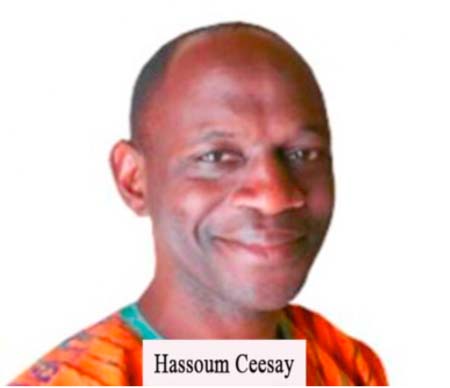
As
part of efforts to conserve the history of James Island and related sites,
National Center for Arts and Culture (NCAC), with support from the
International Coalition of Sites of Conscience Monday commended a week-long
training of tour guides who work in the explanation of the history of James
Island and the related sites of Juffureh and Albreda.
The
training which end on January 7, 2020, is underway at Juffureh in the North
Bank Region.
The
International Coalition of Sites of Conscience is an international coalition of
heritage sites which are links to memories of Goree Island, James Island (Kunta
Kinta) and the Rwanda Genocide Memorial.
Hassoum
Ceesay, director general of National Center for Arts and Culture (NCAC) said
they received grant for support from the International Coalition of Sites of
Conscience to train tour guides who are explaining the history of James Island
and the related sites in Juffureh and Albreda. He said the project will also
train local women in acquiring skills for self-empowerment.
According
to Mr Ceesay, the full title of the project is Combating Illegal Yoth Migration
through skills acquisition, community outreach and peer education, adding that
heritage sites like Kunta Kinteh Island is under threat of river erosion.
“In
the communities, we have about twenty tour guides based in Juffureh and the
island gives them employment. That is why this project seeks to conserve the
history of Juffureh and Albreda, Fort Bullen and improve customer care
services, security, life safety and first aid,” he said.
He
said they have also identified twenty-five women from the communities and
nearby villages to upgrade their skills to be able to make objects that can be
sold to visitors, particularly texiles. He said the women will be trained for
eight days on batik and tie and dye which they can sold to visitors and make
income.
International
Coalition of Sites of Conscience seeks to create a space for innovation and
experimentation by supporting projects that develop new ways of actively
engaging of public in the contemporary issues that tour sites that our sites
like Kunta Kinteh Island raise at the issues of irregular migration, and Kunta
Kinteh was a spot where thousands of Africans where transported across the
Atlantic for slavery.
The
project is in tandem with the National Development Plan as it mentioned culture
as a tool to empower youths.


